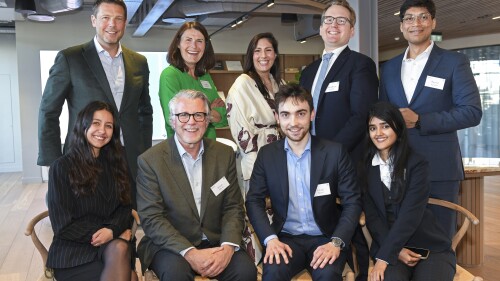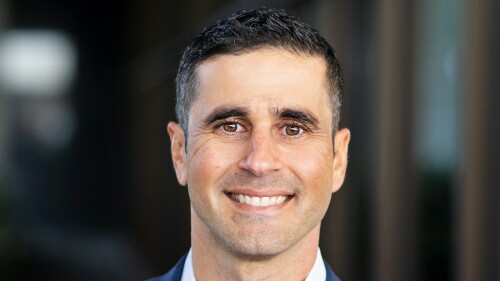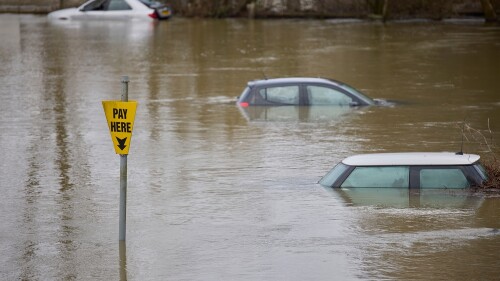Corey Wilson is superintendent of the Recreation and Park Commission for the Parish of East Baton Rouge (BREC). He oversees the more than 170 parks in the system, which includes an observatory, a nature center, an equestrian park, a zoo, a performing arts theater, an arboretum, and more. BREC is committed to improving the health, safety, environment, and quality of life for all citizens.
This interview was conducted in May 2022, as part of a series designed to celebrate park visionaries and share inspiring and practical insights into their perspectives, challenges, and advice. Follow the series to learn from developers, planners, and other leaders implementing their creative visions for parks worldwide.
How do you define a park? How do you think about the role that parks play in communities?
A park is a public space that is open and accessible to all for both active and passive recreation activities. Parks are a foundation of a community, a quintessential space for gathering for people from all walks of life with no criteria for entrance. Everyone, from babies to seniors, benefits from parks. In Baton Rouge, the department maintains a cemetery, so parks play a role for those beyond life!
The pandemic highlighted the importance of parks. When there was a shutdown, public directives said residents could only leave their homes for food, water, and getting outside and being active. This confirmed, with directives from the [U.S. Centers for Disease Control and Prevention] down to the local mayors, how important activity is to life. The parks saw more activity than ever before, and the numbers are still exceeding what they were year-over-year since the beginning of the pandemic.
What drew you to working on parks and public spaces?
My mom was 16 when she had me, and we lived with my grandparents and uncle in a house that fronted on a park. Since I was an only child, the park provided opportunities for me to play with other young people, be part of a team, build my physical fitness, and learn to play hard. I learned both how to win and how to lose gratefully. The park was fundamental and important to me, and it shaped my philosophy that every person should have the ability to access a park.
I am still sort of a baby in the industry and am learning more and more each day about parks. My background is in accounting and law and my first six years with the department I was administrator for finance, HR, communications, IT, and legal. These skills are valuable in running a parks department, especially when coupled with a passion and purpose to provide accessible parks for all. It’s clear to me that if you have access, you can use the lessons from that access to one day be the superintendent of a park and recreation agency, like me.
Tell me about a parks project you think is most impactful.
The development of Howell Community Park in Baton Rouge has been transformational. It’s located in the 70805 ZIP code, which is a predominantly African American neighborhood, has the most crime in the city, and has been historically underserved. Access to fresh food is limited in this area, and there are a high number of people who don’t have access to a car. A 100-acre-plus (40.5 ha) underused golf course was located in the neighborhood. During a big flood in 2016, the area was hard hit and there was over eight feet (2.4 m) of water in the recreation center. The decision was made to close the golf course and change the narrative in the park to provide access to everyone. The scope of work included an extensive amount of cut and fill to create fishing ponds, lighted basketball courts, a multipurpose field, an adventure playground, and supporting facilities. We are rebuilding the recreation center and a new swimming pool, and I am excited about investing in the community and changing the narrative about what goes on in the community.
Since mid-2019, we have had an ongoing partnership with Baton Roots Community Farm, a four-acre (1.6 ha) urban farm and community garden located within Howell Park. Baton Roots brings an opportunity for the community to learn best practices in sustainable agriculture on an urban farm. All of the production at the farm provides residents with fresh, affordable food options in an area without substantial, accessible grocery choices. It is an important counter to growing food insecurity because of rising prices. In addition to the farm, Baton Roots partners with three school garden sites where they deliver the “Hustle & Grow” agricultural curriculum and has leveraged that work to partner with the East Baton Rouge Housing Authority. Baton Roots operates 11 garden sites called Harmony Gardens at East Baton Rouge Parish Housing Authority properties.
How do parks and public spaces intersect with issues of racial equity and social justice? How do you think about equitable access to parks?
You know, we wouldn’t be discussing equity if there weren’t inequities beforehand. This is different than equality where everyone gets the same thing. We now work hard to make sure that people get what they need, and we acknowledge that some people need more than others. Our parks underscore the premise that we have more in common than we have differences.
We are intentional about decisions that provide access to everyone, and sometimes we provide transportation or financial aid if that’s what people need to fully participate in our parks and programs. Some people need us every day because they don’t have a backyard or a swing set, but some people need us only once a year when they want to attend our horse camp. We work to tear down all barriers including transportation and financial issues. By being accessible to all, parks underscore the premise that people have more in common than differences.
How do parks promote sustainability, social connections, and public health?
The more we evolve as humans, the more we understand that we have to take care of our surroundings from a sustainability standpoint, that what we do or don’t do impacts our environment, and we have to help our surroundings help us. Eighty percent of homes in Baton Rouge were flooded in the 2016 storm. Had it not been for parks absorbing some of the water, the number could have been even higher. This benefit accrues to everyone, young, old, Black, white—no one wants to be flooded.
We are now designing our parks to naturalize our canals, so they hold more water and release it slowly to lessen the impacts on homes and businesses. We are very particular about planting and saving trees here. It’s HOT in Baton Rouge and we know that cooling shade is a premium resource that we do not take for granted.
We plan our facilities to use our resources more wisely. For example, two strategically located new recreation centers are being designed to double as central emergency command facilities in our next storm, and we know that there will be more storms. By having these facilities in place, we will be able to be most effective during an emergency while also using the buildings to provide recreational opportunities on a day-to-day basis.
What parks projects have you worked on that you think have had transformative impacts in the community?
I had a major failure early in my work at BREC that led to an actual great success that was transformative and probably was the reason I am now BREC superintendent. There was a unanimous 9-0 vote against the department’s recommendation to relocate the zoo. It was originally located in a predominantly Black neighborhood in North Baton Rouge. Many people from South Baton Rouge came to the zoo. When one of our elephants died, we had to send the other one away because they can’t live alone. As we thought about how to reinvest in the zoo after the loss of the elephants, the staff did a study and recommended relocating the zoo to South Baton Rouge, and they had data and statistics to back up this recommendation. After facilitating months and months of public debate, the staff thought they had the votes to move the zoo.
At the hearing, however, about 90 out of 100 speakers disagreed with the recommendation. The people from the north didn’t want it to leave and the people from the south didn’t want it to be relocated to their neighborhood. That was an extremely clear message to pivot. Once the decision was made to keep it where it was, our staff created a plan to improve the existing facility. BREC is now investing over $50 million to improve it so it becomes a 21st century zoo. There is excitement about the investment, and we expect a spinoff of investment in the community for supporting services like restaurants and shops. The economic impact for the community will be a true benefit.
What do ULI members need to know about parks and cities?
ULI members need to understand how essential and foundational parks are to communities and cities everywhere, big and small.
If you want to have a great city, start and end with parks. That is a powerful commitment to enhance the health and wellness of the residents, and have positive environmental, economic, and educational impacts.
Read about the other leaders featured in the Park Visionary series:
- Kartini Omar, Singapore
- Scott Kratz, Washington, D.C.
- Happy Haynes, Denver, Colorado
- Callie Persic, Belfast, Northern Ireland





![Western Plaza Improvements [1].jpg](https://cdn-ul.uli.org/dims4/default/15205ec/2147483647/strip/true/crop/1919x1078+0+0/resize/500x281!/quality/90/?url=https%3A%2F%2Fk2-prod-uli.s3.us-east-1.amazonaws.com%2Fbrightspot%2Fb4%2Ffa%2F5da7da1e442091ea01b5d8724354%2Fwestern-plaza-improvements-1.jpg)


